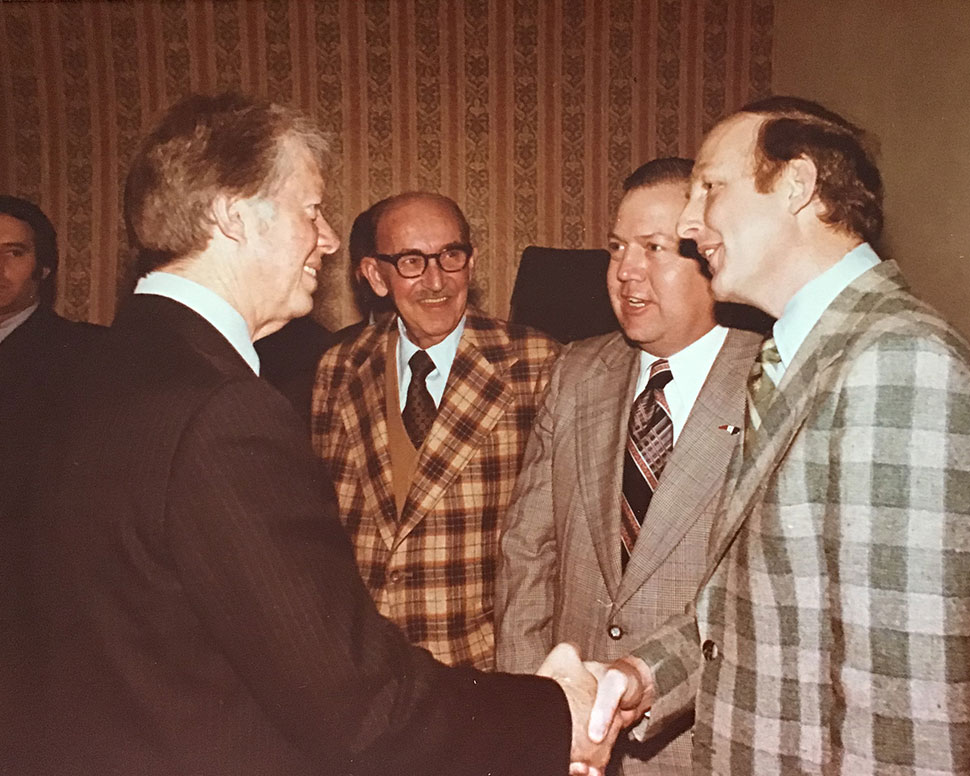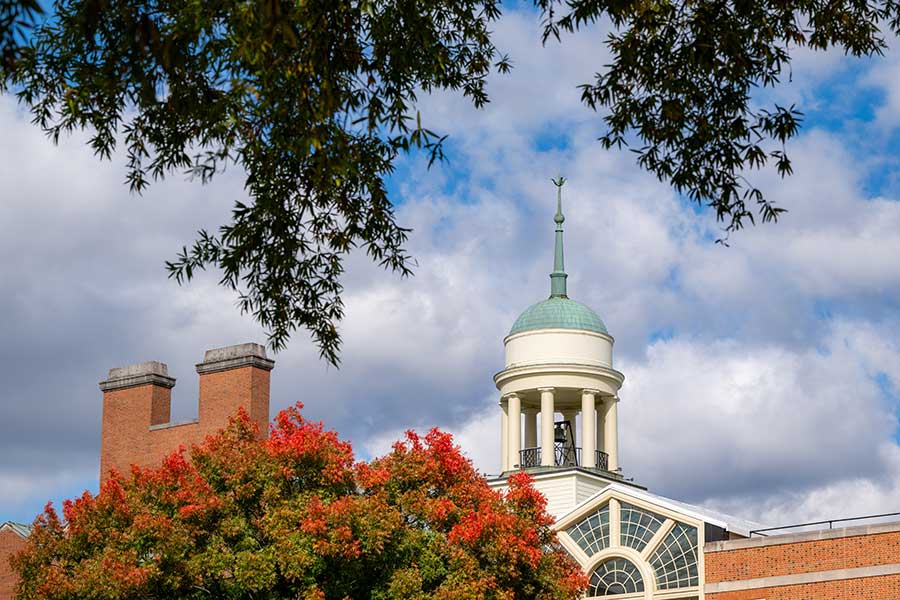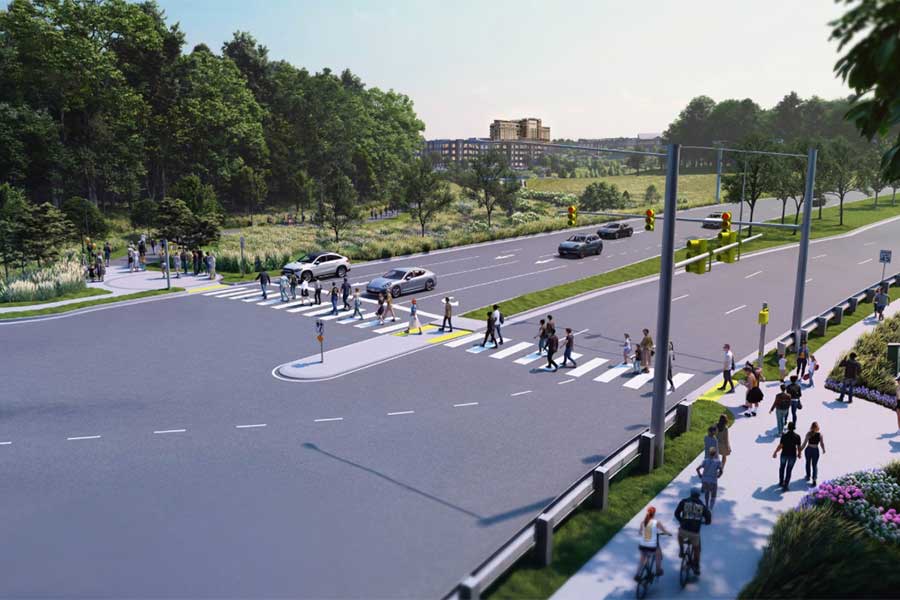Presidential Memories: Jimmy Carter and Wake Forest
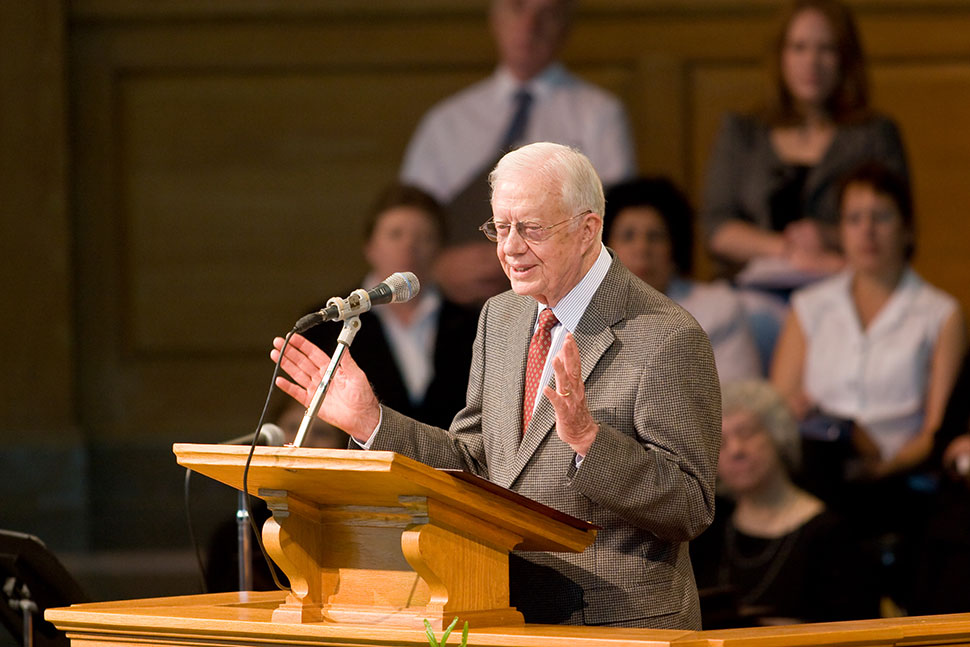
Former President Jimmy Carter influenced and inspired many across the nation, including the Wake Forest University community. He died December 29 at the age of 100.
Carter made four visits to Wake Forest: a campaign speech in 1976, a foreign policy address in 1978 while he was president, a speech on human rights and diplomacy in 1985, and an address to the New Baptist Covenant in 2009.
Faculty, staff and alumni shared their memories of Carter and his visits to campus.
A phone call to remember
In 1996, Bill Leonard, founding dean of the Wake Forest School of Divinity, made the phone call of a lifetime. On the other end? President Jimmy Carter.
Leonard talked with Carter for a Christian Century magazine writing assignment: a review of Carter’s book, “Living Faith.”
Leonard, now professor of divinity emeritus, said the former president reminded him of his Sunday School teachers from childhood.
“There was a genuineness to him that invited you in,” Leonard said.
Two years later, Leonard and Carter met face-to-face at a Baptist meeting in Atlanta. Carter wanted to help bridge the divide within the denomination caused by years of differing views, and in 2009, he addressed this topic at Wake Forest.
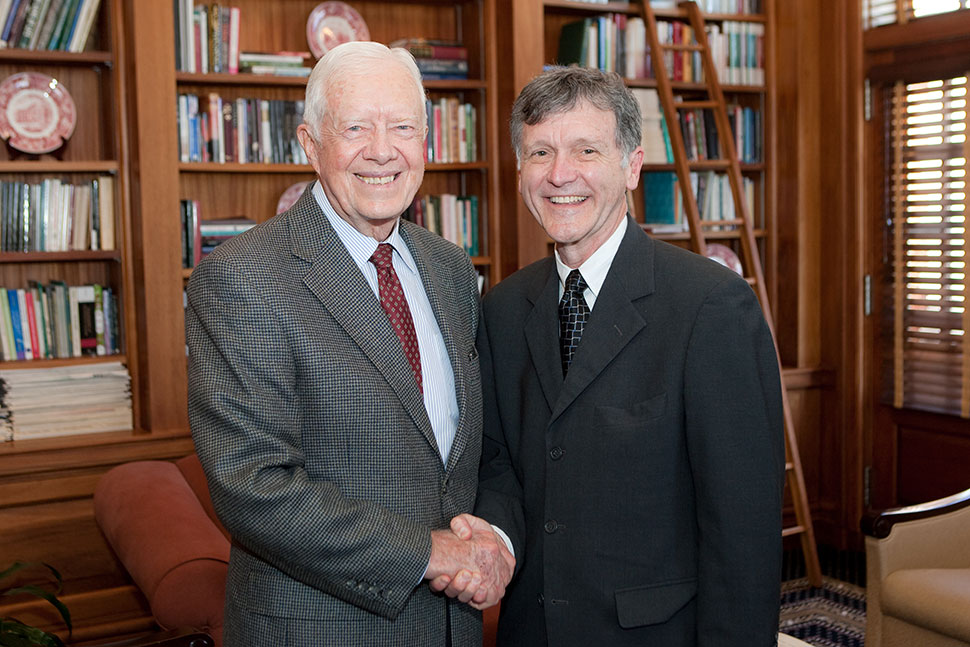
“He really wanted that conversation to lead to cooperative action among Baptist groups in response to human suffering, an essential gospel calling,” Leonard said. “He knew that we Baptists often disagree on theological issues, but we can agree to unite in response to those in need.”
Hannah McMahan King was a School of Divinity student during Carter’s 2009 visit to Wake Forest and helped plan the event. King said, “President Carter was a leader who brought moral clarity in the midst of ambiguity. He was driven by the simple but transformative value of seeing the God-given dignity in every person. His eloquence was not just in his words but in his humble deeds and service. His witness will be sorely missed.”
She later served as the executive director for the New Baptist Covenant, an organization convened by Carter to advance racial justice in and through the Baptist church. She worked closely with Carter for several years before joining Wake Forest as assistant dean for development for the Divinity School and Wait Chapel.
Gary Gunderson, a divinity school professor of faith and the health of the public, worked closely with President Carter at the Carter Center for 10 years.
“Jimmy Carter gave ‘human’ a good name. And, he gave ‘faith’ a good name, too,” Gunderson said.
He published a 2023 blog post, “Carter, the Improbable Man,” about the former president and his legacy.
Carter’s speech “set the tone” for his future work
In 1985, Old Gold & Black reporter Scott Carpenter (’85) was assigned to write about Carter’s campus visit for the student newspaper. He attended the speech in Wait Chapel and a preceding press conference in Reynolda Hall.
Carpenter remembers Carter spoke about advocating for human rights and appealed to the audience to do the same. “His speech set the tone for what he’d do the rest of his life and still does today,” he says.
Carpenter also recalls the fact that Carter spoke without notes.
“That was so impressive to me,” Carpenter says. “He was just such a bright human being.”
An unexpected encounter
As part of the student hospitality group preparing for President Jimmy Carter’s visit in 1978, Greg Hampton (’81) was busy getting ready for the event when he walked into a room to find Carter there. The moment was brief, but Hampton remembers it vividly.
“He was just the nicest gentleman—very easygoing and down-to-earth. It was an honor to welcome him to Wake Forest, to serve in that way,” Hampton said.
The encounter is especially meaningful to Hampton because it led to his passion for — and career in — politics. After graduating from Wake Forest and soon after meeting Carter, Hampton interned for a North Carolina senator in Washington, D.C. He earned an MBA and spent the next 20 years working in Washington.
“I always look back to this,” he said of Carter’s visit. “At Wake, we’re able to get speakers who are really influential. Meeting Carter and hearing his speech was so inspiring.”
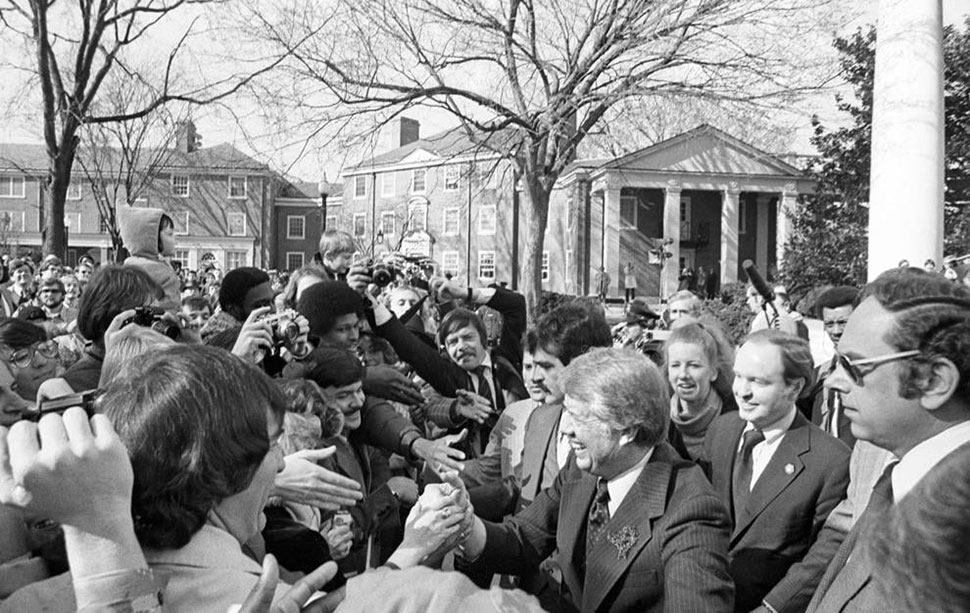
Lessons from history
Jack Fleer, professor emeritus of politics, also attended Carter’s 1978 speech in Wait Chapel.
“The speech set out a strong statement of the readiness of the U.S. military for any threats but emphasized the prior step of diplomacy to settle international disputes,” Fleer said. “The policy statement is quite relevant today, as the U.S. faces the challenges of defending and aiding Ukraine against the Russian invasion of a sovereign nation in Europe.”
